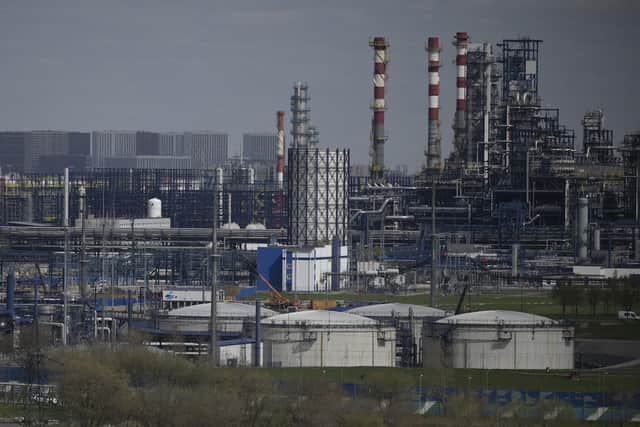Russian oil price cap signals new approach to sanctions - Tom Stocker


The ban includes crude oil, refined products, and bioethanol, bitumen and petroleum gases. Maritime transportation of the oil and oil products, as well as associated services which facilitate maritime transportation, including brokering, financial services and insurance, from a place in Russia to a third country, or from one third country to another third country, are also prohibited.
A UK General Licence has been introduced that includes a price cap exception to the prohibitions where the supply or delivery by ship of oil or oil products falling within commodity code 2709. The provision of related ancillary services will be available to third-country importers, so long as they purchase oil below an agreed price. This will make UK services available to third-country importers and exporters – so long as the price paid for Russian oil or oil products is at or below a price cap.
Advertisement
Hide AdAdvertisement
Hide AdThis approach is novel from a sanctions perspective. The G7 countries have not banned the maritime transportation of certain Russian oil outright. Instead, the focus is on restricting the price that can be paid per barrel of seaborne Russian crude oil. The aim is to limit the Russian regime’s ability to finance the war in Ukraine, while recognising the current global energy security crisis.


The EU required the agreement of all its member states before backing the measure and the G7, EU and Australia agreed a set price cap of $60 (£48) per barrel which only covers the price of the oil or oil products.
The price cap seeks to reduce Russian revenues from oil while avoiding a wider price spike. Russia said it will reject the price cap and has threatened to stop exporting oil to countries that back the G7’s plan.
In response to the new cap, Opec+, a group of the world’s largest oil-producing countries that includes Russia, said it would continue to reduce its output to maintain global prices at current levels
The restrictions are set to impact those within the oil supply chain, including commodity brokers, imports, refiners, those providing trade finance, charterers, insurance brokers and reinsurers. Those seeking to rely on the price cap are required to meet a number of requirements.
All parties involved in the maritime supply chain will need to retain and share price information and/or attestations. The Office of Financial Sanctions Implementation has produced guidance which divides the supply chain into three tiers and details differing levels of obligation on the various actors in the oil supply chain, depending on whether they routinely know the price paid for the oil or oil products in their ordinary course of business and how often they transact. Parties will also be subject to reporting obligations and record-keeping requirements.
Tom Stocker, Partner and specialist in sanctions and compliance risk at Pinsent Masons
Comments
Want to join the conversation? Please or to comment on this article.